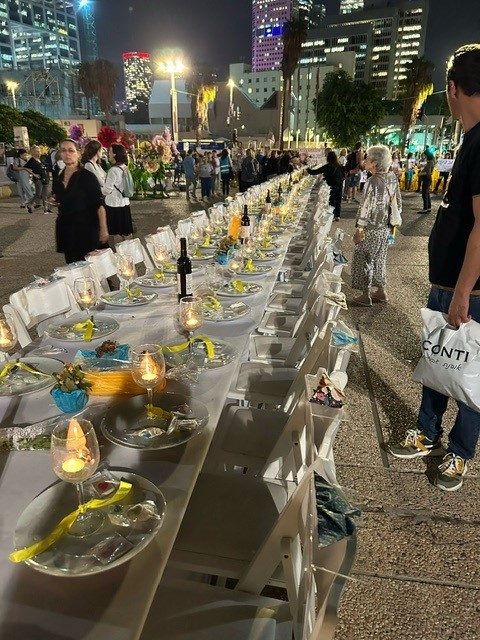We are now more than one hundred days into the Israel-Hamas War. As the violence continues and the death counts rise, many in our community have asked me for my views as to what’s going on. As a result, I thought I’d take this opportunity to share some of my current thinking during these very difficult days.
A couple of caveats: First, my own views, perhaps like yours, are constantly changing, so my observations below may be very different than they are tomorrow. I share these thoughts with you as part of what I hope will be an ongoing dialogue in our congregation about what is going on. Also, this is not a systematic position paper. Rather I thought I’d just send you several somewhat random thoughts as what I hope will be healthy food for thought during this very difficult time.
- Israel is fully within its rights to fight this war.
The first question that philosophers who engage in “Just War Theory” ask is that of jus ad bellum – whether a country has a right to go to war in a given situation. In this case, the answer is clear: On October 7, Israel was attacked by thousands of Hamas terrorists. They murdered more than 1200 people and committed many other horrible atrocities. Moreover, Hamas has made it clear that, given the opportunity, they will commit these atrocities over and over again. In the absence of a diplomatic solution, Israel is left with no choice but to respond with military force. For Israel not to do so would be tantamount to committing an act of national suicide.
As I argued during my October 13 sermon, this is a time for moral clarity on the part of the Jewish people. Those who would deny Israel the right to engage in this war are calling for Israel to hand over its citizens and its national destiny to murderers at its doorstep. In the rising rhetoric din around us at this moment, remembering Israel’s fundamental right to self-defense grows more important each day.
- Hamas can indeed be defeated.
From the outset, many people (myself included) have asked whether Hamas can indeed be defeated. Can we kill every one of them? Even if Israel wins at some level, won’t there always be one radicalized twelve-year-old whose family was murdered and grows up to be part of a new generation of terrorists? We’re dealing with a terrorist movement here – can Israel ever really defeat it?
Yes! It will be difficult, of course, and there’s always the danger of Israel becoming mired in a seemingly unending conflict similar to the way the US got stuck in Vietnam and Afghanistan. But those aren’t the only models that history provides. It’s also possible that, with the help of an international coalition, Israel can overcome Hamas just like Allied forces overcame the Nazis during World War II. There are still Nazis, of course, and even with Hitler’s downfall, there remain people committed to perpetuating his evil. But the US did succeed in stripping the Nazis of their military power, and in denuding them of the ability to fulfill their goals. If Israel fights this war right, it can do the same thing with its enemies, too. Victory might not come quickly, but to argue that it can’t ever happen in principle is to grant Hamas a legitimization that we cannot afford.
- The deaths of so many Gazan civilians is utterly tragic.
Israel has reportedly has killed more than 20,000 people in this war – many of them civilians, many of them women and children. Those are Hamas’s statistics, and they may be inflated. But even if the real number of victims amounts to only a fraction of that number, that amounts to a lot of victims. Israel doesn’t target civilians, of course, and there is no doubt that some civilian deaths are inevitable during war. Nevertheless, I don’t see Israel taking these deaths as seriously as I believe it should. We here in the diaspora are talking about Gazan civilians a lot, and I wish Israel seemed to be doing the same.
Even as it fights this war, couldn’t Israel set up hospitals for wounded civilians on the border? Couldn’t it airlift in food and medical supplies? Maybe or maybe not, but I wish the tragic deaths of civilians appeared more readily on the Israeli “radar” than they seem to be appearing now.
- Israel must give Palestinians reason for hope.
Even as it fights this important war, it concerns me that Israel doesn’t seem to be giving Palestinians any reason for hope – hope that Israel can have any role in making things better for them, hope that there might be a good reason for Palestinians and Israelis to work together to build a better, more peaceful time for them all. This is partly the result of the right-wing policies of Israel’s current government, and I fear that, if those policies are allowed to remain in place, it will be to the long-term detriment of Israel and its citizens.
Though I am certainly not an expert in international policy, it seems to me that it behooves Israel to give innocent Palestinians some reason to believe that Israel can be their partners in peace, even as it fights Hamas in war. Offer settlement freezes in the West Bank; offer infrastructure improvements in Gaza in return for Hamas stepping down; offer something to build a better tomorrow. If Israel doesn’t, I fear that the cycle of violence will only continue.
- Israel is not committing genocide.
Just as I’m not a policy expert, so too am I not a lawyer. Yet it is clear to me that the genocide accusation against which Israel is currently defending itself in The Hague is preposterous. The UN Convention on Genocide defines genocide as “acts committed with intent to destroy, in whole or in part, a national, ethnic, racial or religious group.” The key word here is “intent.” Yes, some Israeli leaders have made ugly comments about what they’re trying to do during this war, but the goal of Israel’s war in Hamas is not the destruction of Palestinians or Gaza; instead, the goal is self-defense. Tragically, Hamas hides behind Gazan civilians, and innocent people often get caught in the crossfire.
Israel isn’t genocidal. Instead, Israel is fighting to avoid falling victim to the genocide that Hamas is trying to perpetrate.
- Here in Calgary, things seem to be quieting down…a bit.
I’ve spent many hours since October 7 speaking with individuals and groups in our congregation. Not only have we been traumatized by the war, but we’ve also been dealing with an agonizing spike in antisemitic fervor here on the home front. During the past couple of weeks, however, I’ve noticed that things seem to be getting a little better – just a little. Yes, the antisemitic ugliness is still out there, but it seems to have tapered a bit. Without denying the reality of the challenges we still face, it is encouraging to see that things may be slowly improving. May it continue to be so.
- I am working to build bridges.
In the wake of the October 7 attacks, many non-Jews reached out to us offering support. With a few notable exceptions, however, most Muslim leaders remained silent. In fact, most of them rebuffed me when I extended my hand in an effort to build bridges connecting our two communities. It was deeply troubling, but given the depth of the trauma on the part of both Muslims and Jews, maybe I should have expected it.
I have, however, continued to do what I can to connect with local Muslims, and lately, my efforts have begun to pay off. I don’t have anything firm to announce just yet, but I do want you to know that the work continues. I hope that we can foster connection even in the face of the violent divisions keeping us so separate in recent days.
- Many of us disagree.
Our Temple community includes people with a wide variety of views on these issues: Some of us like Netanyahu; others are in favor of the opposition. Many of us support the war; others see it as genocide. Most of us feel sympathy for Israel, some of us are deeply critical of it, and many of us feel both of those emotions. We are a Jewish community, so this is just as it should be.
Let’s remember that Judaism has never seen disagreements as existential threats. Instead, our tradition has always held that disputes – when engaged in constructively and respectfully – can only strengthen us. Each such conflict can, according to the rabbis, be a disagreement for the sake of heaven.
Sadly, I’ve many of us get so angry about these disagreements that we lose the ability to talk to those with whom we disagree – choosing instead to complain to others rather than engage in constructive dialogue. I encourage you not to let this happen. When somebody says something you find objectionable, talk with them about it. When you disagree, engage in dialogue. And be sure to do so not to vanquish your opponent, but rather to understand more deeply where they’re coming from, and maybe to share why you feel the way you do, too. Maybe you can each learn a thing or two in the process.
- Stay at the table
In fact, the spirit of constructive dialogue should imbue everything we do these days. The recent conflict in Israel has thrown up walls separating people from people, and it’s tragic. Talk with your Muslim neighbors; talk with Jews who disagree with you; talk with people and groups who say things that make you angry. We need to stay at the table with all these people because they are our neighbors, and if we can’t talk with our neighbors, then we give the forces of conflict a victory right here in our own community – and to do so would be a real tragedy.
As I said, I share these thoughts with you in the spirit of ongoing dialogue and reflection. If you would like to connect with me about any of these issues, please feel free to reach out.
In the meantime, I know you join me in the heartfelt prayer that these days of conflict and violence will soon give way to peace and security for all those who find themselves in harm’s way during these difficult and dangerous times.

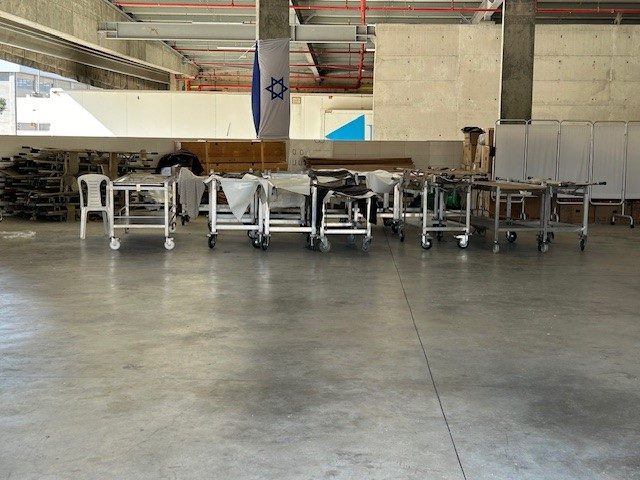
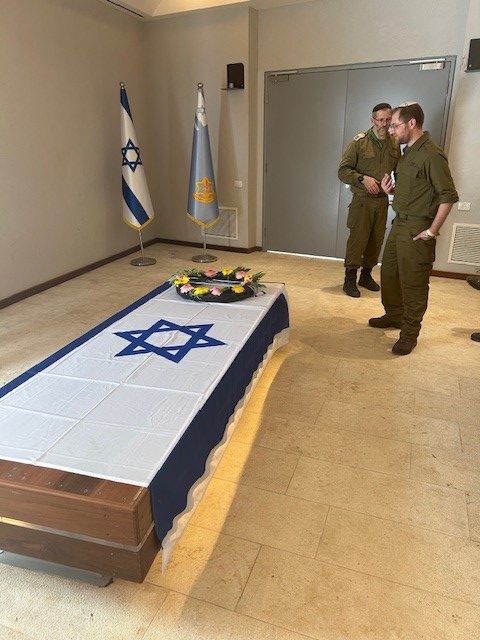
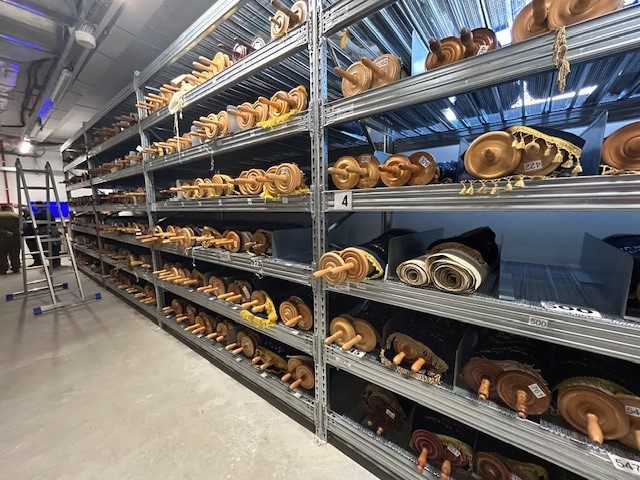
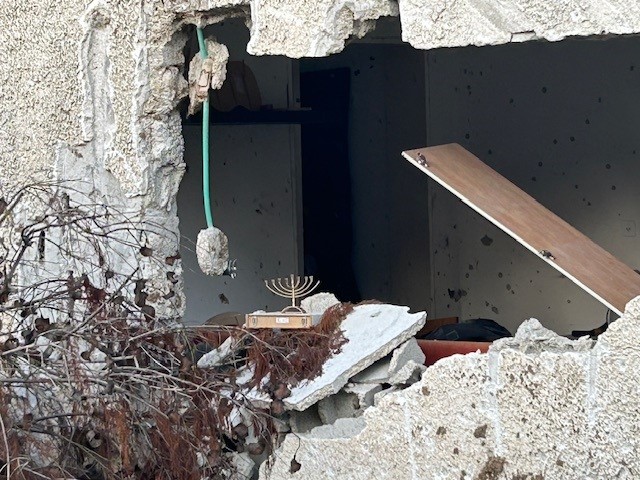
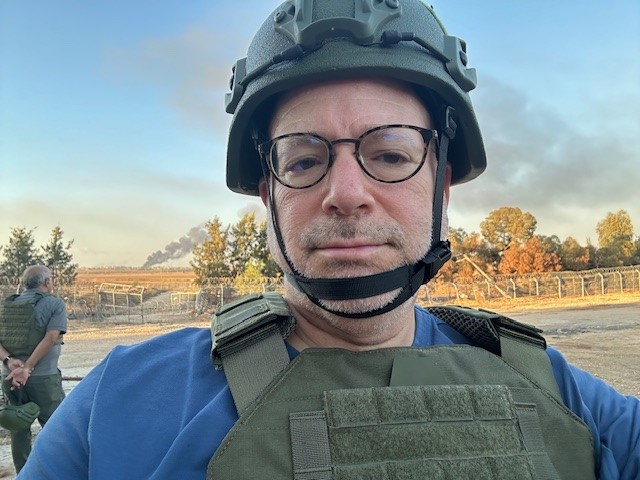
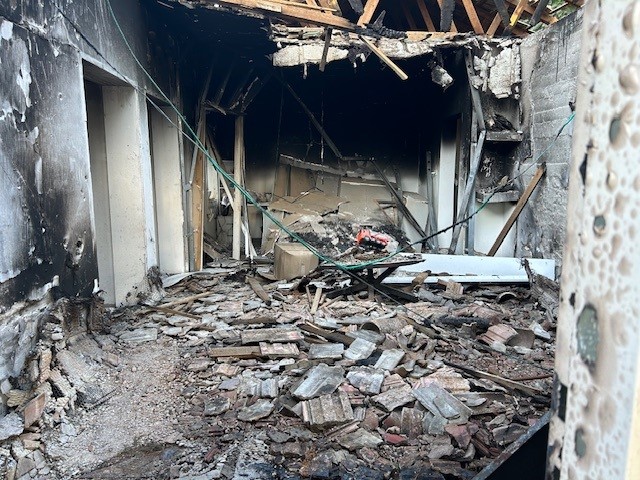
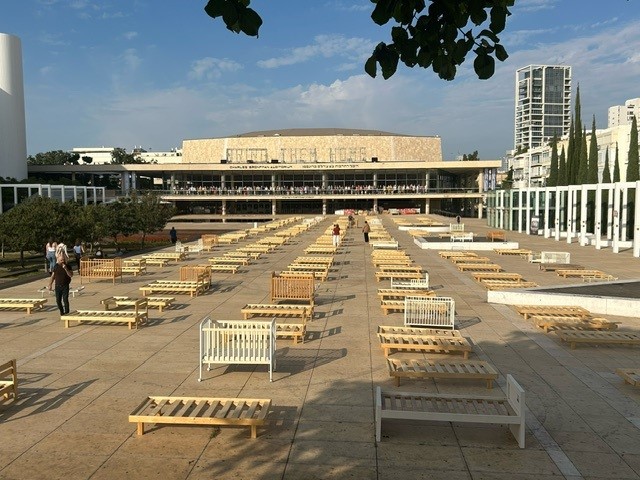
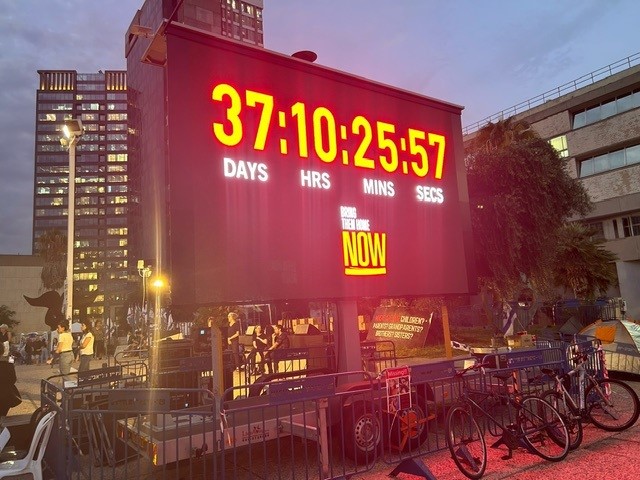 They connect hostage families with government officials and resources, they conduct press conferences, they convene groups of foreign dignitaries, and, whenever possible, they negotiate on behalf of the hostages. There, our group met with several former Israeli ambassadors who are working on behalf of the hostages, and we also heard from several of the family members themselves, who told us their heartrending stories.
They connect hostage families with government officials and resources, they conduct press conferences, they convene groups of foreign dignitaries, and, whenever possible, they negotiate on behalf of the hostages. There, our group met with several former Israeli ambassadors who are working on behalf of the hostages, and we also heard from several of the family members themselves, who told us their heartrending stories.